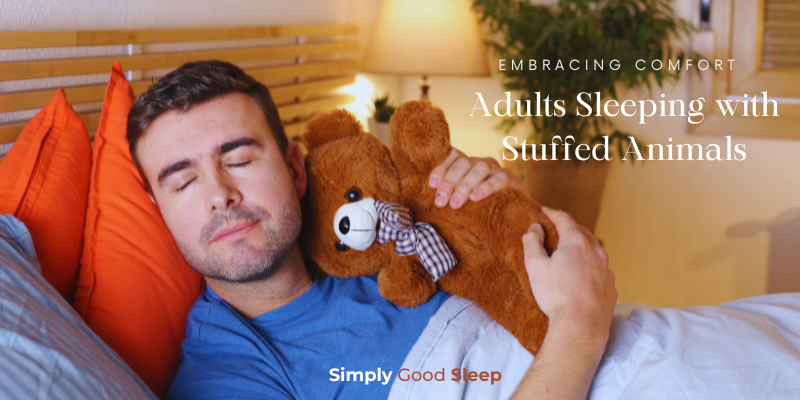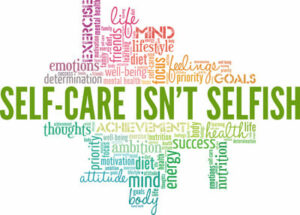
In a world where stress and anxiety seem to reign supreme, the quest for comfort becomes a paramount pursuit. Amidst the chaos of adult life, one seemingly unconventional trend has gained traction: adults sleeping with stuffed animals. While traditionally associated with childhood, the phenomenon of grown-ups cuddling up with plush companions has sparked curiosity and even controversy. Let’s delve into the intriguing world of adults and their beloved stuffed animals, exploring the psychology, societal perceptions, and the undeniable comfort they provide.
The Psychology of Comfort
The allure of stuffed animals transcends age boundaries, tapping into a primal need for security and comfort. Psychologists suggest that the act of snuggling with a plush toy can trigger feelings of nostalgia, evoking cherished memories of childhood innocence and safety. In a hectic world filled with responsibilities and uncertainties, these moments of solace offer a respite from the pressures of adult life.

Moreover, the tactile experience of holding a soft, cuddly companion can stimulate the release of oxytocin, often referred to as the “love hormone.” This hormonal response promotes feelings of bonding and relaxation, fostering a sense of emotional well-being. For many adults, the simple act of hugging a stuffed animal can provide a sense of reassurance and tranquility, akin to a comforting embrace from a loved one.
Societal Perceptions and Stigma
Despite the undeniable benefits of sleeping with stuffed animals, societal attitudes towards this practice can vary widely. While some view it as a harmless and endearing habit, others may perceive it as immature or eccentric. The stigma surrounding adults with stuffed animals highlights society’s rigid expectations regarding appropriate behaviors for grown-ups.
However, it’s essential to challenge these preconceived notions and embrace the diversity of human experiences. The desire for comfort and emotional support knows no age limit. Individuals should feel empowered to seek solace in whatever form brings them joy and peace of mind. As long as it doesn’t harm oneself or others, there should be no shame in finding comfort in a beloved stuffed animal.
Breaking the Taboo: Normalizing Adult Comfort Objects
As attitudes towards mental health and self-care continue to evolve, there has been a gradual shift towards normalizing adult comfort objects, including stuffed animals. Increasingly, individuals are openly embracing their affinity for plush companions. They share their stories and experiences on social media platforms and online communities.
This trend has helped break down the stigma associated with adults sleeping with stuffed animals, fostering a sense of acceptance and understanding. By celebrating diversity in coping mechanisms and self-soothing techniques, we can create a more inclusive and compassionate society where individuals feel empowered to prioritize their emotional well-being without fear of judgment or ridicule.
The Evolution of Stuffed Animals: From Childhood Companions to Adult Comfort Objects
The bond between humans and stuffed animals dates back centuries, with these cuddly companions serving as loyal confidants and playmates for generations of children. However, as adults increasingly recognize the therapeutic benefits of comfort objects, the role of stuffed animals has evolved beyond childhood nostalgia.
Today, companies offer a wide range of plush toys specifically designed for adults, featuring sophisticated designs and luxurious materials aimed at providing maximum comfort and relaxation. From weighted plushies that mimic the sensation of a gentle hug to aromatherapy-infused stuffed animals that promote tranquility, the market for adult comfort objects continues to expand to meet the growing demand.
Embracing Self-Care: Finding Comfort in Unexpected Places
In a world where self-care has become a buzzword, it’s crucial to remember that true self-care extends beyond surface-level indulgences and encompasses practices that nurture our mental, emotional, and spiritual well-being. For many adults, sleeping with a stuffed animal represents a form of self-soothing and emotional regulation, offering a sense of security and comfort in times of stress or uncertainty.

By embracing unconventional forms of self-care, such as cuddling up with a plush companion, individuals can cultivate greater resilience and emotional intelligence. Rather than dismissing these practices as childish or frivolous, we should recognize the profound impact they can have on our overall well-being and incorporate them into our self-care routines without hesitation or shame.
Conclusion
In a world that often feels chaotic and overwhelming, the simple act of sleeping with a stuffed animal can serve as a powerful source of comfort and reassurance for adults. Whether it evokes cherished memories of childhood innocence or provides a tangible sense of security in times of distress, the bond between grown-ups and their plush companions is a testament to the enduring power of human connection and the universal need for comfort.
As societal perceptions continue to evolve, it’s essential to challenge stigmas surrounding adult comfort objects and celebrate the diverse ways individuals seek solace and emotional support. By normalizing practices such as adults sleeping with stuffed animals, we can create a more compassionate and inclusive society where everyone feels empowered to prioritize their emotional well-being without fear of judgment or ridicule. So, if you find yourself reaching for that beloved plush companion at night, rest assured that you’re not alone in seeking comfort in the embrace of a cuddly friend.
We’d love to hear your thoughts and experiences! Share your views on adults sleeping with stuffed animals in the comments below.

2 Responses
Hello. I absolutely love the idea of this. In fact I have a stuffed animal that I’m going to grab right after I’m done this I’m going to try this out tonight. I’m laying in bed so it’s perfect. I don’t think there’s anything childish about it. I think with how much pain the average person has bottled up inside every little bit can help.
Hi Jake! It’s heartwarming to hear that you’re open to trying out this comforting practice. You’re absolutely right—there’s nothing childish about seeking comfort and emotional support in a stuffed animal. In fact, it’s a beautiful and intuitive way to nurture your well-being.
In today’s fast-paced world, many of us carry around a lot of hidden pain and stress. Embracing small acts of self-care, like cuddling a plush companion, can make a significant difference. It’s about finding those moments of peace and joy that help us feel more grounded and secure. Your willingness to try this out and share your thoughts is a wonderful step towards breaking the stigma and normalizing diverse forms of self-care.
Wishing you restful and comforting nights with your stuffed animal. Sweet dreams!